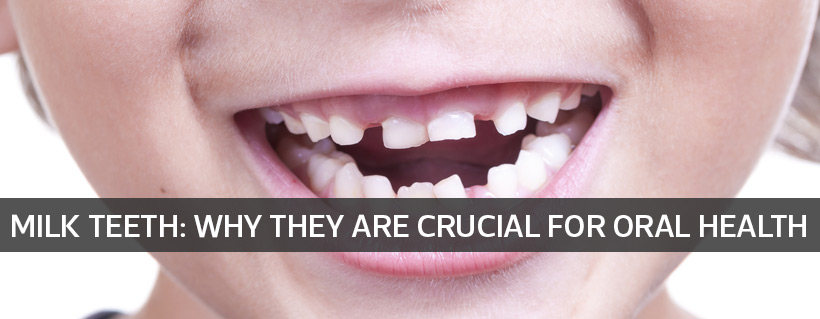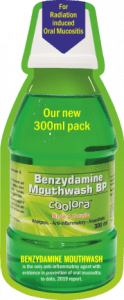Menu

Date: 19th Dec. 2017
The most frequently asked question by most of the parents to a dentist is, “What is the importance of baby teeth?” and, “Why to save or take care of milk teeth when ultimately, they are going to fall and get replaced by permanent teeth?”
The answer to this is, baby teeth are just as important as the permanent teeth and require proper oral care. Negligence towards the care of baby teeth can lead to serious problems affecting not only their dental health but also general health.
Children need their teeth to chew food. So, if their teeth are permitted to decay, the child will not only suffer from discomfort, pain, and abscessed (pus formation) tooth, but also be unable to eat. This, in turn, could lead to malnourishment, ultimately affecting their growth.
Children need their teeth to smile. The stigma of blackened teeth and bad breath can lead to serious teasing at school and at play, which could affect the child’s psychosocial development.
Milk teeth are needed a for normal growth of the jaw bone and give an appropriate shape to the face. Primary teeth control the development of the jaw muscles and the jaw bones so that they are properly developed and can provide suitable space for the permanent set of teeth. Milk teeth give the face its shape and form.
Space saver milk teeth are essential to hold the spaces open so that the permanent teeth can come into the correct position when they are finally developed enough to erupt (erupt-to come through the gums). This prevents malocclusion (abnormal occlusion). Premature exfoliation (removal) of primary teeth could lead to erupting of permanent teeth in inappropriate positions. Hence, mispositioning of teeth can lead to crooked teeth, chewing difficulties, facial asymmetries, TMJ problems, and last but most important, decaying of teeth.
Milk teeth help in the development of speech. The tongue produces certain sounds with the presence of (primary) teeth. Children have difficulty in learning to pronounce the sounds like “th” and “f” in the absence of their front teeth. Without healthy, properly-aligned teeth, the child may face problems of articulating words and clear speech.
Milk teeth are important to maintain child’s psychosocial well-being as well. Healthy baby teeth are a tremendous boost to a child’s self-confidence and self-esteem.
Because of bad conditioned milk teeth (grossly decayed), parents have to visit the dentists frequently. At a stage, the only treatment options left are either removal of the teeth or root canal treatment (pulp therapy). Both of these procedures are painful, thereby giving a lifelong fear of dentists and dental treatment in the child.
Hence, it is very important to take care of baby teeth to avoid damage to the adult or permanent teeth, when they come in the oral cavity. So, visit the dentist as soon as the first tooth comes in the oral cavity and make the habit of visiting the dentist once every 6 months right from childhood.
It would definitely help in avoiding and reducing not only dental problems but general growth-related issues as well, assuring healthy smiles throughout life and moreover, decrease the financial burden and loss of time and work of parents, because of future complicated treatment procedures.


| PRODUCTS | QTY | PRICE | VALUE in INR |
|---|
| PRODUCTS | QTY | PRICE | VALUE in INR |
|---|